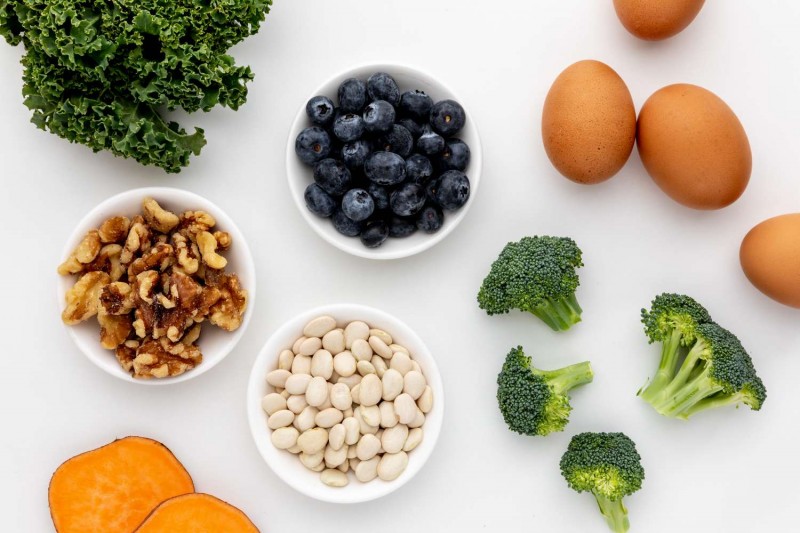
Inflammation plays a crucial role in various health conditions, including arthritis. For individuals dealing with arthritis, particularly gout, incorporating an anti-inflammatory diet can potentially offer significant benefits. This dietary approach involves consuming foods that help reduce inflammation in the body, which in turn can alleviate symptoms and improve overall well-being. This article delves into the concept of anti-inflammatory diets for arthritis patients, highlighting the potential advantages and discussing the types of foods that can be beneficial. Arthritis, characterized by joint inflammation and pain, affects millions of people worldwide. Among the different types of arthritis, gout stands out due to its strong association with dietary choices. An anti-inflammatory diet is emerging as a potential approach to manage the symptoms of gout and other inflammatory conditions effectively.
Gout, a form of inflammatory arthritis, is caused by the accumulation of uric acid crystals in joints. This leads to intense pain, swelling, and redness in the affected areas. Dietary factors, especially foods high in purines, can trigger gout attacks. Hence, adopting a diet that mitigates inflammation becomes essential.
Diet plays a pivotal role in managing gout. Certain foods can either exacerbate or alleviate inflammation. An anti-inflammatory diet can help regulate the body's immune response and reduce the risk of recurrent gout attacks.
Anti-inflammatory foods offer a range of benefits for gout patients. They not only help in managing pain and inflammation but also contribute to overall health. These foods provide essential nutrients, antioxidants, and compounds that combat inflammation at a cellular level.
Omega-3 fatty acids, found in fatty fish like salmon, are potent anti-inflammatory agents. They help reduce the production of inflammatory molecules, thereby easing joint pain and stiffness.
Antioxidants, abundant in berries, combat oxidative stress and inflammation. Berries like blueberries and cherries contain anthocyanins, which possess powerful anti-inflammatory properties.
Whole grains, such as quinoa and brown rice, are rich in fiber. Fiber promotes gut health and reduces the levels of C-reactive protein, an inflammatory marker.
Lean proteins like poultry, tofu, and legumes provide necessary amino acids without the saturated fats found in red meat.
Rich in omega-3 fatty acids, fatty fish help reduce inflammation and may alleviate joint pain.
Berries are packed with antioxidants that combat inflammation and oxidative stress.
Leafy greens offer vitamins, minerals, and antioxidants that contribute to an anti-inflammatory diet.
These are excellent sources of healthy fats and compounds that help reduce inflammation.
These spices contain curcumin and gingerol, respectively, which possess potent anti-inflammatory properties.
Processed foods often contain trans fats and high levels of sugar, both of which can trigger inflammation.
Red meat and high-fat dairy products can contribute to inflammation due to their saturated fat content.
Refined carbs like white bread and sugary cereals can lead to spikes in blood sugar and inflammation.
A high-sodium diet and excessive sugar intake are linked to inflammation and various health issues.
Transitioning to an anti-inflammatory diet requires planning and gradual changes. Start by incorporating small amounts of anti-inflammatory foods and gradually reducing pro-inflammatory choices.
Adequate hydration is essential for flushing out toxins and maintaining joint health. Water also supports the body's natural healing processes.
Chronic stress can contribute to inflammation. Stress management techniques like meditation and yoga can complement dietary changes.
Exercise helps improve circulation, joint flexibility, and overall well-being. It's a valuable addition to an anti-inflammatory lifestyle.
Regularly tracking gout symptoms and dietary habits can provide insights into the effectiveness of the anti-inflammatory diet.
Before making significant dietary changes, consult healthcare professionals, especially if you're on medication for gout.
Discover real stories of individuals who have successfully managed their gout symptoms through anti-inflammatory dietary changes. Adopting an anti-inflammatory diet holds immense promise for individuals with gout and other inflammatory conditions. By choosing foods that combat inflammation and support overall health, individuals can experience relief from pain, improved joint function, and enhanced quality of life.
Stale Rotis: Your Unexpected Allies in Diabetes Management
Boost Digestive Health with Our Tasty Broccoli Carrot Salad Recipe